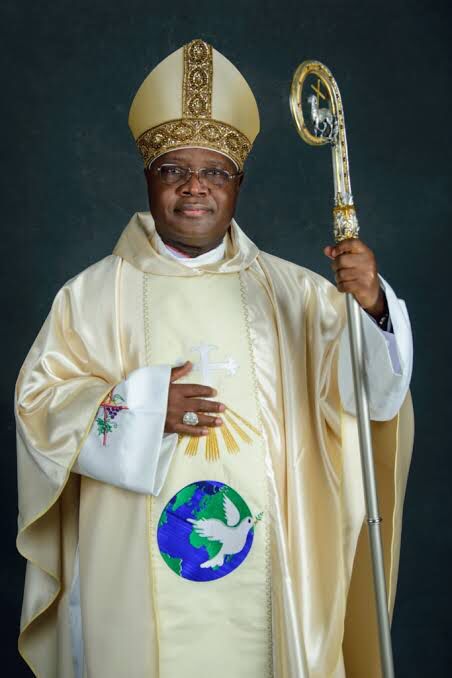If cells are studied with a microscope, the past is also revealed in detail with a magnifying lens. …
Many cases of this type occurred for the Crown of Castile and Aragon in those months and years, while those expelled disintegrated into the diaspora. “As the consolidation of the modern State involved the recognition of a single faith, the Inquisition was strengthened and those who secretly practiced Judaism and Islam or those accused of witchcraft, in addition to Lutherans, were persecuted,” explains the historian Víctor Ricote, author of several books about the province of Guadalajara. “In the places that were the head of the region, like Huete, the repression against the so-called Judaizers was greater.”
The significance of this historical episode – although the expulsions occurred in more European kingdoms, in the Iberian Peninsula they caused the Jewish community to be almost non-existent until the 19th century – decisively determined Spain’s treatment of the Jewish world and, from from its birth in May 1948, with the State of Israel. The ambivalent role of Francoism in World War II -and, therefore, its ambiguous position regarding the Jewish genocide, with the open debate on the opportunism of the regime and the humanitarianism of some of its officials- further complicated this intricate puzzle, marked by the milestone of January 1986, when the Felipe González’s government established diplomatic relations with the Jewish State.
New tensions
After a series of announcements, another socialist leader, the President of the Government, Pedro Sánchez, supported by some countries, is expected to recognize the Palestinian State, a gesture that will undoubtedly strain bilateral relations with Israel, always marked by a complex historical legacy. . In this sense, it is worth remembering the words that Israel’s first ambassador to Spain, Samuel Hadas, wrote in December 1992 in the magazine ‘Político Exterior’, five hundred years after the controversial expulsion edict: «The diplomatic process that concluded with the “The establishment of diplomatic relations between Spain and Israel must be seen against the background of another no less important one: that of the Jewish-Spanish reunion.”
That long path of reunion began to be cleared in the mid-19th century, when some astonished Spanish soldiers heard groups of Sephardic Jews from North Africa speaking in Ladino. «The Spanish Army arrived in Tetouan and met the Jewish community, which had been almost devastated by the Moroccans before they left, and was surprised that the Jews spoke almost medieval Spanish. Chroniclers like Pedro Antonio de Alarcón wrote about those encounters, and the Sephardim of Morocco became privileged interlocutors and mediators for the Spanish,” explains researcher Davide Aliberti, author of ‘Sefarad. An imagined community (1924-2015)’.
“In the second half of the 19th century, Jewish investors and businessmen began to settle in Spain,” he adds. For example, the Rothschilds or the Bauers, related to the management of the railways. In fact, an uncle of Franz Kafka, Alfred Lowy, lived in Madrid at the beginning of the 20th century to dedicate himself to these businesses, and his tomb can still be visited in the Santa María de Carabanchel cemetery.
Painting by Emilio Francés that shows the moment in which Torquemada throws the crucifix in front of the Catholic Monarchs to force them to expel the Jews
Prado Museum
It was also in those years when Ángel Pulido’s work bore fruit. A doctor by training, Pulido’s passion for everything that surrounded the Jews expelled by the Catholic Monarchs began in 1893, when, during a trip along the Danube, he came into contact with Sephardim for the first time, which fascinated and encouraged him. to champion their cause. «Thanks to Pulido, Miguel Primo de Rivera signed the Royal Decree in December 1924 that recognized the nationality of some Sephardic Jews,” says Aliberti.
This legislative framework helped certain Spanish diplomats, such as Ángel Sanz Briz, save Jewish lives in World War II. Despite this heroic work, the Franco regime maintained a calculatedly ambiguous position regarding these issues. For example, Aliberti says that close relations were established with Arab countries, but cultural links were also forged with the Jewish world, as evidenced by the celebration of the World Sephardic Bibliographic Exhibition (1959) and the First Sephardic Symposium (1964).
«Spain’s role in the Holocaust is complex. We did not go to war nor was there an occupation, there were no deportations of the Jewish population or racial laws, although there was a very restrictive refugee policy, even for Sephardim who had Spanish nationality, which had fatal consequences,” explains sociologist Alejandro Baer. «There was also visceral anti-Semitic propaganda by the Franco regime, an aspect that is little known. The absence of a Jewish community that experienced all that and our transition model (turn the page, look forward) meant that most Spaniards did not know about the role of the Franco regime during the Holocaustits proximity to the Axis, the anti-Semitism of those years or its survival today,” he laments.
The turning point came with the death of Franco and the beginning of the Transition, but above all the approval in 2015 of the Spanish Nationality Law for Sephardim. «It was promoted by the Popular Party and sent a political message: we want to welcome the Sephardim because we want to reintegrate them. The problem is that it excluded other groups, such as the Moriscos, whose descendants had also asked for a similar law,” says Aliberti. «The 2015 Law also conveyed that they wanted to strengthen ties with Israel. Today there is a kind of reversal of roles: the left is against Israel, especially after the Gaza war, and everything is becoming polarized. Pedro Sánchez’s position is political and he represents a gesture to satisfy all the groups that are on the left.
“66% of Spaniards do not believe that denying the Holocaust is a problem, compared to the EU average of 38%,” states the ‘National Plan for the implementation of the European strategy to combat anti-Semitism’.
A critical look
Back in our small historical laboratory, researchers have also documented the existence in Huete of a Muslim community that converted to Christianity in 1501. Therefore, the facts make it difficult to maintain the discourse of the ‘three cultures’, a story promoted since the Transition to present Spain as a tolerant country that was later transferred to the sphere of tourism, and which maintains that Christians, Muslims and Jews lived together in harmony in the Middle Ages. “Was a society divided into castes, which were in contact, but did not mix. The issue of coexistence is almost totally unreal,” says Aliberti. “We should see to what extent we have to restructure the tourist experience to transform it into something more conscious and critical,” she proposes.
“The Jews were expelled, but the anti-Jewish culture remained,” says Baer. “Pejorative religious motifs and stereotypes remained ingrained through language, literature, Catholic liturgy and popular traditions,” he notes. «At the end of the 19th century, the motives of modern anti-Semitism were incorporated, such as global conspiracy theories. The small Jewish presence that began to exist at the end of the 19th century did not change anything. In Spain, anti-Semitism was continuously cultivated without Jews.
According to data from the ‘National Plan for the implementation of the European strategy to combat anti-Semitism’, published by the Ministry of the Presidency in 2023, “66% of Spaniards do not believe that denying the Holocaust is a problem, compared to 38% of Spaniards. % EU average” and “68% of Europeans and 86% of Spaniards admit to not being well informed about the history of the Jews». Anecdotes can be illustrative: for example, the Burgos town of Castrillo Matajudíos changed its name to Castrillo Mota de Judíos in 2015. Similarly, researcher Daniela Natala, in her article ‘Anti-Semitism in the Spanish proverb and lexicon’, documented the survival of terms such as ‘judiada’ (playing tricks on someone). Without a doubt, anti-Semitic vices have not disappeared.

